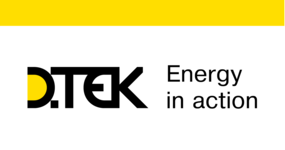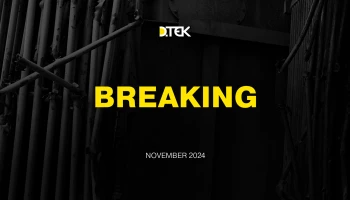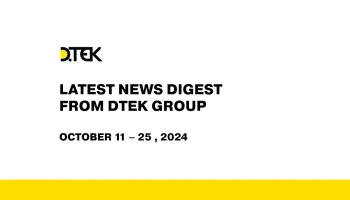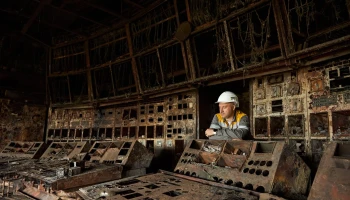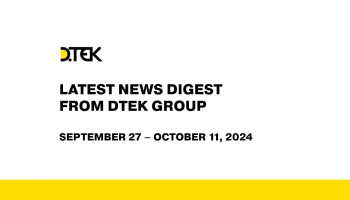HADLEY GAMBLE: Yeah, which raises questions, frankly, about this agreement with the EU and how quickly—where that gas is going to come from and how quickly they could get to the market.
But I want to bring in—saving the best for last—Maxim. Walk us through, if you will, what’s happening in your country today, how this is impacting your business, how this is impacting consumers who are still able to live somewhat normal lives if they’re not in the epicenter of the fighting. And I think the whole audience would join me in saying that we’re all thinking and praying for your people.
MAXIM TIMCHENKO: Thank you. Thank you for invitation and opportunity to speak about Ukraine here. I’ll never be a politician, and I’m leading one of the largest power producer in Ukraine for 18 years. But I just appeal to everybody not to be so naïve saying that politics is not connected to energy. It’s happening for centuries. Saying that Nord Stream 2 was purely commercial project, listening to Putin saying that he will never use energy as a weapon, I think we should stop this naiveté because we have different energy crisis. Energy crisis in Europe is rising prices, rising cost of households’ bills, which politicians don’t like, lack of diversity of energy supply, probably green transition not at a speed as it was expected.
But let me tell you about energy crisis in Ukraine today. We have 34 days of shelling our energy infrastructure, two out of five nuclear power stations captured by Russians. One is Chernobyl power station full of spent fuel and the other one the largest nuclear power station in Europe with six nuclear power units and controlled by Russians at the moment.
We have 1.3 million settlements, villages, and cities disconnected from electricity supply and 1.5 million people without electricity supply for weeks. Probably all of you know the city of Mariupol and, basically, this is the example how Ukraine resist. This city with a half million population before the war, nobody knows how many people left and how many people killed in this—in the city. And this city lives without electricity, heat, and gas supply for 26 days. Temperature—minus temperature in Ukraine two weeks ago.
So this is energy crisis in our country. But what is—we have one similarity of energy crisis in Europe and in Ukraine is behavior of Russia. Even before this war started, you all can realize that Russians could increase supply of gas to address rising prices. It was not done. And now we cannot imagine that energy crisis will be over with one key prerequisite—war in Ukraine stop—and, again, we cannot be naïve, saying that Europe is not in war. It is already in economic war with Russia, and we are very much grateful for all support we get from our European partners bringing sanctions, bringing such a strong response and unity.
I’ve been asked about short-term response on this Ukrainian crisis, what we demand and what we appeal. To the companies I’ve seen on the screen still working with Russia, so every dollar paid today to Russia, either for gas or oil or any machinery supplied to Russia, converted into bullets killing Ukrainians. What higher price can be then death of 137 children in the country? What can justify any business plans or profits or revenues coming from Russia to these companies?
We are very much grateful for those who stop any connections to Russia at the expense of profits and shareholders’ value or whatever is more important for corporations. But it’s not enough. I think it should become part of corporate policy for the Western world and for the company respect freedom. It should be in the corporate court not to walk with terrorist countries like Russia today.
HADLEY GAMBLE: When you think about what happens next, there have been a lot of conversations, obviously, about what could, potentially, happen in Eastern Europe, and I’m talking about NATO members. When we sit here with these ministers—and you mentioned naiveté—do you look at them and say, your country could be next?
MAXIM TIMCHENKO: If we don’t stop altogether this war immediately, yes. Because nobody thought that full-scope invasion can happen in Ukraine until the last moment, until 24th of February. It’s happened. Nobody could expect that some crazy man can—shelling nuclear power stations. It’s happened. Nobody was thinking that this war cannot—that they attack cities and civilians, hundreds of thousands. But it’s happened.
So who can say with any level of guarantee that your countries from Eastern Europe wouldn’t be the next one?
HADLEY GAMBLE: Yeah.
MAXIM TIMCHENKO: Of course not. And, again, this is about naiveté. Let’s stop talking about something not happening at your homes. It will come if we do not unite all our efforts and stand with Ukraine and fight for our future. This is the words of the men living in Ukraine all this weeks and coming here just for two days to deliver this message.
HADLEY GAMBLE: President Zelensky, in the last 48 hours—President Zelensky, in the last 48 hours has, essentially, said that he is calling on energy-rich nations to help support the market so that, potentially, Europe will agree to sanction Russian energy, calling on oil-rich nations, calling on gas-rich nations. We’re sitting in one right now.
Would you make the same call as your president? Should the UAE, should Saudi Arabia, should Gulf Arab producers of oil, be supporting the market at this point and should gas countries like Qatar, like others, be attempting to make up as quickly as possible for that shortfall so that Europe is able to be weaned off of Russian gas more quickly?
MAXIM TIMCHENKO: Of course. That’s what I call unity. The whole world should unite. Either increase supply of gas or increase supply of armory to Ukraine or put a ban on buying Russian products. So I think it’s all in our hands our future. So we should not underestimate the threat we have now from Russia, because Ukraine can be the first country. The next will be Europe.
